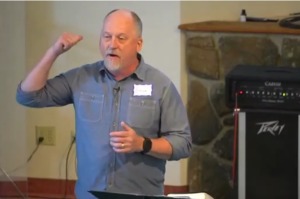7 Ways Pastoring Has Changed in Thirty Years
We are out of clichés about change or the pace of change. Sometimes we forget how much particular vocations have changed in a short time. In fact, in thirty years pastoring has changed in ways we likely would have never predicted or imagined.
In early 1984, I began serving as a pastor for the first time. I would ultimately serve four churches as a pastor and nine churches as an interim pastor. In 1984 I was a young 28-year-old pastor without a clue. Today I am 58-years-old, and I'm still not sure I have a clue. So much has changed. So much has changed in pastoring in just thirty years. Let's look at major ways the pastorate has changed in that time.
1. Thirty years ago, most people in the community held the pastor in high esteem. Today most people don't know who the pastor is, nor does the pastor hold any position of prominence in most communities.
2. Thirty years ago, most people in the congregation held the pastor in high esteem. Though I cannot offer precise numbers, there is little doubt that church members as a rule don't view pastors with the same esteem as they did thirty years ago. That is one major reason serving as a pastor is becoming increasingly difficult.
3. Leadership skills are required more today than thirty years ago. Thirty years ago, I could preach sermons well and care for the congregation, and I would be deemed at least an adequate pastor. The demands and the expectations of the pastor are much higher today. Many of those demands can only be met with at least decent leadership skills.
4. Interpersonal skills are required more today than thirty years ago. Pastors thirty years ago could get away with some personality quirks because they were generally held in such high esteem. No more. Pastors are supposed to relate near perfectly to everyone.
5. Outreach was accomplished by getting people to come to church services thirty years ago. That is not so today. I remember some of the classic outreach ministries I led thirty years ago. They were all designed to get people to visit church services as a first step. Today, many barriers must be addressed in order for someone to be receptive to come to our churches.
6. Thirty years ago, there were very few "nones." The 2012 Pew Research project that identified 20 percent of all American adults as non-religiously affiliated has become a marker of change. Almost all people claimed some type of religious affiliation thirty years ago whether they were believers or not. It was not culturally accepted to be a "none" thirty years ago; there is no cultural stigma attached today.
7. The Internet and social media have made pastoring much more challenging than it was thirty years ago. In many ways, it has been healthy that the pastors and their ministries are more transparent. For example, sex abuse of children in churches became a national concern when many priests and pastors were named as sexual predators. But there is no rule that someone must speak truthfully on the Internet and, specifically, in social media. Pastors today must deal with issues about them that travel fast on the Internet, even if a church member or someone else tells a complete lie.
Some things about pastoring, of course, never change. The pastor is still called to preach the Word, equip believers, and provide ministry to congregants and others. But other aspects of pastoral ministry have changed and will continue to change.
Certainly pastors need training in Bible and theology. But, more and more, pastors need additional preparation in leadership skills, interpersonal skills, and missional realities. Thirty years ago, the church expected the pastor to be a capable preacher and caregiver. Today much more is expected.




























